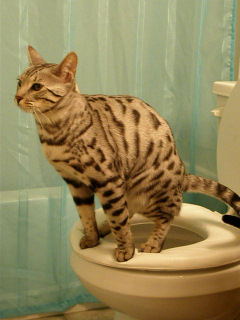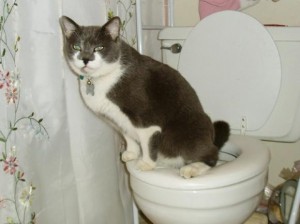Reasons You Mustn't Flush Cat Poop Down Your Toilet - Maintain Your Plumbing Health
Reasons You Mustn't Flush Cat Poop Down Your Toilet - Maintain Your Plumbing Health
Blog Article
Just about everyone may have their own unique conception about How to Dispose of Cat Poop and Litter Without Plastic Bags.

Intro
As cat owners, it's important to be mindful of just how we deal with our feline pals' waste. While it might seem convenient to flush pet cat poop down the bathroom, this practice can have damaging consequences for both the setting and human health and wellness.
Alternatives to Flushing
Fortunately, there are more secure and a lot more responsible means to throw away cat poop. Take into consideration the complying with choices:
1. Scoop and Dispose in Trash
The most usual method of disposing of feline poop is to scoop it right into a biodegradable bag and toss it in the trash. Make sure to make use of a devoted clutter scoop and take care of the waste quickly.
2. Usage Biodegradable Litter
Opt for naturally degradable pet cat clutter made from materials such as corn or wheat. These trashes are eco-friendly and can be safely taken care of in the trash.
3. Bury in the Yard
If you have a backyard, consider burying feline waste in a marked area away from vegetable yards and water resources. Be sure to dig deep sufficient to stop contamination of groundwater.
4. Install a Pet Waste Disposal System
Invest in an animal garbage disposal system specifically created for pet cat waste. These systems make use of enzymes to break down the waste, reducing odor and ecological influence.
Wellness Risks
In addition to environmental worries, purging pet cat waste can also position health and wellness dangers to human beings. Cat feces may consist of Toxoplasma gondii, a bloodsucker that can create toxoplasmosis-- a possibly severe illness, particularly for expecting ladies and individuals with weakened immune systems.
Environmental Impact
Flushing feline poop introduces dangerous virus and bloodsuckers right into the water, posturing a significant risk to aquatic communities. These pollutants can negatively affect marine life and compromise water quality.
Conclusion
Responsible pet ownership expands past offering food and shelter-- it also involves correct waste monitoring. By avoiding purging feline poop down the toilet and opting for alternative disposal approaches, we can decrease our environmental impact and shield human wellness.
Why Can’t I Flush Cat Poop?
It Spreads a Parasite
Cats are frequently infected with a parasite called toxoplasma gondii. The parasite causes an infection called toxoplasmosis. It is usually harmless to cats. The parasite only uses cat poop as a host for its eggs. Otherwise, the cat’s immune system usually keeps the infection at low enough levels to maintain its own health. But it does not stop the develop of eggs. These eggs are tiny and surprisingly tough. They may survive for a year before they begin to grow. But that’s the problem.
Our wastewater system is not designed to deal with toxoplasmosis eggs. Instead, most eggs will flush from your toilet into sewers and wastewater management plants. After the sewage is treated for many other harmful things in it, it is typically released into local rivers, lakes, or oceans. Here, the toxoplasmosis eggs can find new hosts, including starfish, crabs, otters, and many other wildlife. For many, this is a significant risk to their health. Toxoplasmosis can also end up infecting water sources that are important for agriculture, which means our deer, pigs, and sheep can get infected too.
Is There Risk to Humans?
There can be a risk to human life from flushing cat poop down the toilet. If you do so, the parasites from your cat’s poop can end up in shellfish, game animals, or livestock. If this meat is then served raw or undercooked, the people who eat it can get sick.
In fact, according to the CDC, 40 million people in the United States are infected with toxoplasma gondii. They get it from exposure to infected seafood, or from some kind of cat poop contamination, like drinking from a stream that is contaminated or touching anything that has come into contact with cat poop. That includes just cleaning a cat litter box.
Most people who get infected with these parasites will not develop any symptoms. However, for pregnant women or for those with compromised immune systems, the parasite can cause severe health problems.
How to Handle Cat Poop
The best way to handle cat poop is actually to clean the box more often. The eggs that the parasite sheds will not become active until one to five days after the cat poops. That means that if you clean daily, you’re much less likely to come into direct contact with infectious eggs.
That said, always dispose of cat poop in the garbage and not down the toilet. Wash your hands before and after you clean the litter box, and bring the bag of poop right outside to your garbage bins.
https://trenchlesssolutionsusa.com/why-cant-i-flush-cat-poop/

Do you enjoy more info about Don’t flush cat feces down the toilet? Try leaving a remark down below. We will be glad to see your opinions about this post. In hopes that you visit us again in the near future. In case you enjoyed reading our blog entry plz do not forget to pass it around. I am grateful for your time. Kindly check up our blog back soon.
Services Report this page